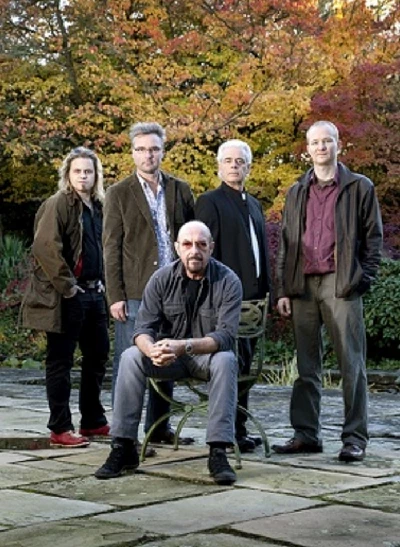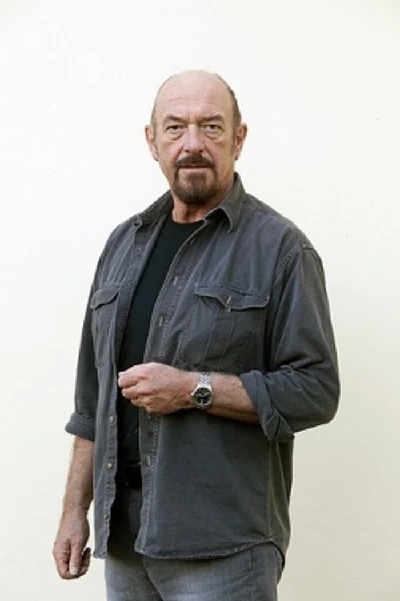published: 29 /
4 /
2013

Lisa Torem talks to Ian Anderson about 'Thick as a Brick 2', his recently released sequel to his band Jethro Tull's classic 1972 prog rock masterpiece; his feelings on gun control and his interest in politics
Article
St. Cleve “child poet” Gerald Bostock first became fictionalised in the Jethro Tull prog rock album ‘Thick as a Brick’ in 1972. Since that time, the album has never been performed in concert as a whole piece. The story might have ended there had Derek Shulman (Gentle Giant) not nudged multi-instrumentalist songwriter and lead vocalist, Ian Anderson, to compose and produce a follow-up. Once Anderson agreed that the now 50-year-old Bostock deserved proper reflection, he set to work and completed writing the new material in a fortnight. With the “what-might-have-beens” and the “what-ifs” addressed in ‘Thick as a Brick 2’, the famed flautist was ready to tour. But even though the original album was a Billboard smash, Anderson had reservations about the way new and older audience members would react – after all, would an acoustic-based album with lyrics that require introspection please international rock audiences of all ages?
“The conceptual and heavily lyrical nature of the beast, however, might be out of place in the attention span-deficit world which we seem to occupy these days,” Anderson stated in a press release. But the fans are more than ready - their positive responses indicate - to look back on their own lives and appreciate a collection that transcends prog rock and welcomes a new day of fusion.
Anderson began touring ‘Thick as a Brick’ last year in the UK under his own name and looks forward to repeat performances in the US this summer. In our second interview with Pennyblackmusic, he discusses the fine art of looking back gracefully, why politics continue to fascinate him and his odd relationship with Hawker Hunters.
PB: Ian, your concerts have been known to attract international guest artists and you’ve had a history of exploring many genres other than blues and prog rock. What do you think of the term, “world music?”
IA: I think what we’re talking about is national and regional folk music. If what you mean is, ‘Israeli folk music,’ then say, “Israeli folk music” or “Finnish folk music.” To lock them in some curious way into “world music” – all people mean is they’re sitting outside the orbit of westernised rock or pop or jazz or classical music. “World music” is a bit of a “get-out” clause for people who really don’t want to specify a little more about what it is they mean.
If I say I like world music, I immediately have to put out a disclaimer because it must not contain anything from the Hawaiian islands, the West Indies and it’s unlikely to contain music from Kazakhstan or Uzbekistan or China, but it might well include my interest in Indian music or music of Scandinavian folk origins or Russian folk music. It is just way too generalised a topic, but if it’s got steel drums or Hawaiian guitar in it then I’m afraid it will send me screaming from the room. I can’t deal with those noises. They would come under terms of world music, but it sure is not what I would have in mind to assault my eardrums. Boingy-boingy and twaingy-wangy could satisfy other people perhaps, but certainly not me.
PB: There’s been a lot of discussion about the lyrics of ‘A Change of Horses’ on ‘Thick as a Brick 2’ on the Jethro Tull website. Some fans think it’s about Obama being elected and others suspect it’s about your philosophy.
IA: It is a function within the piece. There are a lot of people – I’m not one of them – who are at the point in their lives where they embark bravely or foolishly on a completely different tack. I certainly admire people who achieve something in life and then decide, been there and done that, now it is time to go and write that book or set off on a sailing expedition around the world, climb a mountain or to pay a lot of money to spend a few days on an international space station – people who decide it’s actually time to make a change. It’s time to hitch your wagons to some fresh horses, and go somewhere you haven’t been before.
It’s not applicable to me because I’ve pretty much always been a musician. But during my thirties and forties, I went about doing some other things. I’m thinking more about people when they hit fifty – a lot of people, understandably, decide it’s time to try something else. Maybe it’s just to take up a new hobby; maybe it’s just to expand their horizons. It could be as simple as some old fogey deciding to send emails or go on Facebook.
PB: ‘Thick as a Brick 2’ looks back on “what might have been.” Do you have any fantasies you would still like to realise? Like swimming with sharks or jumping out of a fighter plane?
IA: I could probably jump into a fighter plane but I think it would have to be a Hawker Hunter, from that wonderful era of British airplanes – one of those fine and aesthetically pleasing machines that’s from the 1950s. It was a very beautiful airplane and it had the curves and sensuality of the E-type jaguar, another British design of that era.
PB: You played your 1969 song ‘Bouree’ recently with NASA’s Colonel Catherine Coleman, who is also a flautist. I think playing music with an astronaut might also fall under the same category. Was that exciting?
IA: Yes. We talked a couple of times about the possibility of doing something else, and communicating with NASA to the extent of suggesting that there might be something. There are quite a few astronauts, past and present, who have musical affiliations. It would be amusing, but you’ve got to make it entertaining. Amateur musicians know their limitations. Somehow you’ve got to sell it on a different level to an audience that has to be drawn in primarily because a lot of the curiosity about seeing an astronaut in a blue astronaut overall – you’ve got to capture the magic about those people who have what was once termed “the right stuff” and they have that. That’s perhaps what drives some of them to want to get onstage to perform, going beyond the safety of something that you know and can do - pushing the envelope to try to do something that scares the shit out of you. That’s how it is.
Catherine’s been onstage at the Albert Hall, and it must have been an extremely nerve wracking thing to do. But I think those kinds of people like to scare themselves. That’s what we do for a living. And once the rockets stop flying, I guess you look for other things that give you that thrill.
PB: You were the youngest child in your family. Did that experience inform your imagination?
IA: I’m sure it did, but my two older siblings were so much older than I was when they left home that most of my childhood was spent alone. For all intensive purposes, I wasn’t the third child. I was an only child. I hardly saw my brothers. One emigrated to Canada, and the other went to live in another part of the world far from the UK, so most of my childhood was spent alone – not in a depressed or solitary state – because I had things that interested m. I suppose part of that process of early childhood was where you do learn to be self-sufficient, and look inside yourself for entertainment and creativity.
Drawing and painting interested me and reading and playing alone. I would just be sitting in my garden with my air rifle shooting at little tin soldiers. I was interested in shooting. I don’t mean death and destruction shooting of anything that lived; I enjoyed the art and the discipline of shooting. I was about nine-years-old when I was first in possession of an air rifle under the threat of it being immediately removed if I pointed it in the wrong place or did anything foolhardy, which I didn’t – I was a conscientious shooting child.
But, of course, in America and over here the thought of children with guns scares the shit out of some people understandably. There are some things in life that, if you learn them properly when you’re young and have respect for it, then it doesn’t get out of hand later on. The people that really worry me are the people who come to all of that via violent video games and fancy exploits where the division between reality and fantasy just becomes so blurred.
But as a youngster, you learn the reality of it, not the fantasy. You’re actually really carrying a gun. You’re learning to control your breathing, to fix a point, to aim and relax. It’s not like gung ho video game mentality at all. It’s completely the opposite. It’s very common discipline.
I defend shooting as I do to this day in the hands of responsible people. Unfortunately there are folks that get a hold of guns that really should not be allowed anywhere near them, and they do it for the wrong reasons. Sometimes people get to it because of the idea of self-defense, and that is always a danger because after a while aggression starts to sneak in, as well, and people who have a gun around the house - perhaps they tell themselves - shoot an intruder as a last resort. Sometimes having those things and not ever having a chance to use them becomes a weird, pent up frustration, like a priest with a penis. If you don’t actually use it, it starts to become a scary sort of frustration.
I think if you have guns that you should use them regularly in a responsible way in a range or in a sporting context – shooting for the pot, shooting game – something where you have a good reason for doing it. Self-defense is not a good reason. It becomes, to most people, a gun that they’re actually not used to using. If you’re going to do that stuff, you’ve got to take it seriously.
PB: On your website, you conduct imaginary interviews with yourself. I imagine that, after all of these years, you get asked a lot of the same questions. Which questions do you wish people would stop asking and which do you wish they would?
IA: Well, I think a lot of people ask a lot of questions based on things they already know the answers to, or the obvious questions that they think the reader wants to hear. They ask me those questions hoping I’m going to put them into my own slightly different words. And to some extent, I do try to do that. I don’t read from the script or parrot exactly the same thing that I said before. I do try to give it some spontaneity, and make it fit the person who is asking the questions.
But nonetheless, the topics seem to get very repetitious. There are more general things to do with religion, sexuality and politics – that sort of thing would interest me more to talk about than some of the questions that do get repeated often.
Among the questions that I get asked really often: ‘How did you get the name, Jethro Tull?’ It’s so well recorded that it’s almost not worth asking the question, but from time to time I have to answer it and I try to do it with good humour and good grace, even though I’ve heard my voice answer it thousands of times.
PB: You have accomplished many things in your life. How would you most like to be remembered?
IA: I suppose being someone who could mix the arts with graceful philosophy and a lifestyle that doesn’t infringe on other people too much. I’m not a power crazy person. I would make a bad politician because I wouldn’t ultimately have the cold-blooded hard shell to make that work, but in some ways, I suppose, politics fascinate me.
It was interesting to hear this today. Our ex-prime minister, Tony Blair, was again defending his incursion into Iraq with George Bush, saying that he didn’t regret anything about it. And he has to be defensive about it until the day he dies because frankly in this country and in the rest of Europe he is reviled for the duplicitous way in which he took British troops into Iraq, and compromised the European community’s resolve to find ways to avoid invading the country and deposing the leader.
I don’t mean to say that the world is not better off without Saddam Hussein, but if you set out to depose the leader of another country through some misguided views and high morals then you’re in danger of corrupting yourself.
Tony Blair is not going to be well remembered in the history books. It’s sad because I think he was a good politician and a good leader of the country for the first half of his ten years as prime minister, but he did a number of things that I think really were a big mistake.
And George Bush, who I think was really a decent guy, I always thought he was viewed as being, unfairly, a not very bright man. Part of it was being led by the evil twins, who I think had their place, obviously in that administration. But Bush was a lot brighter than people give him credit for. I mean, I read his book, and it clearly was written by him. It wasn’t ghostwritten. He had a good sense of humour and a good grasp of history, and I thought it was a good book. I wish more people would read it and perhaps reconsider their opinions of George Bush, Jr.
However, don’t confuse wars. It’s easy to start talking about Afghanistan as being the present day Vietnam. I mean there are parallels, but there are different wars, different people, different times, just as Iraq is quite different than Afghanistan, and I do think Iraq was a containable situation. There were no weapons of mass destruction. That’s been said time and time again by the weapons inspectors, harassed by some very faulty intelligence and became the excuse for two grown men to go play war games with the enormous numbers of lives in a number of countries, and I do think that it was a mistake.
Afghanistan was a brave effort. Had I been in that situation would I have invaded Afghanistan? Probably on balance, I guess, yes, but without any realistic hope of success. I think history shows us that these are not usually winnable wars, but Afghanistan was a different matter. Iraq was not the hotbed of terrorism; it was just a bad guy ruling over a divided country. This isn’t about destroying airplanes or destroying city buildings. To be the international policeman of the world is a dangerous thing to try to do.
PB: You’ve had a history of being involved in wildcat conservation. What should we know about this?
IA: Well, I think it’s important not to confuse wildcats with domestic cats, number one. Wildcats don’t make good pets. There are some that take on the onerous incarceration of wild animals, and it’s something that fills me with horror. I come across this in some cases. Some are truly horrible and some are just misguided people who have a great love for wildcats, but locking them up doesn’t seem, to me, to be applicable except as a last resort for endangered species, in which case captive breeding, and indeed, cloning would be the techniques of last resort. But, generally speaking, the first resort is preserving them in the wild in their natural habitat and trying to remove the usual man -made threats that have forced them into extinction. That’s number one. Don’t confuse wild and domestic.
Domestic cats have been domesticated for a long time. It only takes a couple of generations for them to go back to being completely wild, but it takes many generations to get completely tame cats or dogs. It doesn’t take long to back cross to a pure bred wolf, but it takes a long time, many generations, to get a reliable dog again from the wild. It’s usually five or six generations before you can safely handle them.
It’s not something that anybody should want to do, but if you take a domestic cat and back cross it with a cat of the same chromosomes of a similar size then you will get something that is absolutely not handleable. So all those people who fool around with F2 and F3 Bengal cats or some of the hideous crosses between the so called Savannah and the Bengal they look very pretty, but I think it’s a little Frankensteinian. It’s about people who want something exotic, and want to show it off.
PB: Have you thought about writing your own memoirs?
IA: I honestly don’t think very many people would want to read a book that I have written. I’m not interested in talking about me, and I’m 100% disinterested and opposed to talking about people who I’m close to or I have been close to do. I can’t write a biography or a kiss and tell book about people. I just wouldn’t do that, and it is way outside my views as to what is acceptable about revealing things about other people.
I might reveal things about me, but I’m never going to tell you anything about my friends and, like most people, I’ve probably got some fairly juicy things that I could reveal, but there’s no way I’m going to do that.
Other than that, if you ask me to write a book about religion or international politics or something, that would be pretentious or not welcome, but maybe, but not yet. When I’m finally dragged kicking and screaming from a concert stage, with somebody wagging their fingers saying, “You really are too old to be doing this,” then I’ll go home and get out my laptop and start writing.
PB: It’s very hard to imagine Ian Anderson not performing…
IA: Well, it’s going to happen one day. It may well be feet first that I exit the stage, but it’s an honourable way to go…
PB: Thank you.
Band Links:-
http://www.jethro-tull.com
https://www.facebook.com/officialjethr
https://twitter.com/jethrotull
Picture Gallery:-




Visitor Comments:-
|
|
626 Posted By: Curt Curtis, Sacramento, California / Covington, Georgia on 06 Jun 2013 |
Thank you for helping me grow. I'll see you in San Francisco in July my friend. Tenth row and have never missed a show.
|
|
622 Posted By: Dawn Giamarino, Seymour, WI on 16 May 2013 |
Yes, Mr. Anderson, I would love to sit in the pub, quaffing a beer, and listening to your tales. You are in a class by yourself. Carry on!!
|
|
620 Posted By: Andy, Germany on 16 May 2013 |
magic, really magic. No one plays this intrument better than IA.
|